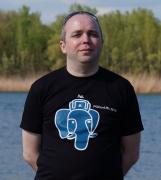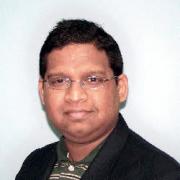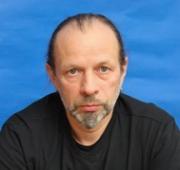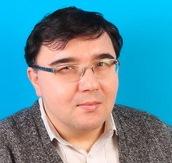PgConf.Russia 2019
PGConf.Russia is a leading Russian PostgreSQL international conference, annually taking together more than 500 PostgreSQL professionals from Russia and other countries — core and software developers, DBAs and IT-managers. The 3-day program includes training workshops presented by leading PostgreSQL experts, more than 40 talks, panel discussions and a lightning talk session.
Thems
- PostgreSQL at the cutting edge of technology: big data, internet of things, blockchain
- New features in PostgreSQL and around: PostgreSQL ecosystem development
- PostgreSQL in business software applications: system architecture, migration issues and operating experience
- Integration of PostgreSQL to 1C, GIS and other software application systems.
Talks
Talks archive
-
 Dmitry Yuhtimovsky Gilev.ru
Dmitry Yuhtimovsky Gilev.ruMagic tricks followed by exposure (1C+PG):
- Focus number one. How to convince the accounting department to buy a new server.
- Focus number two. How to show that MS SQL is faster than PostgreSQL.
- Focus number three. How to show that PostgreSQL is faster than MS SQL Server.
-
 Jignesh Shah Amazon Web Services
Jignesh Shah Amazon Web ServicesIn this session we will deep dive into the exciting features of Amazon RDS for PostgreSQL, including new versions of PostgreSQL releases, new extensions, larger instances. We will also show benchmarks of new RDS instance types, and their value proposition. We will also look at how high availability and read scaling works on RDS PostgreSQL. We will also explore lessons we have learned managing a large fleet of PostgreSQL instances, including important tunables and possible gotchas around pg_upgrade.
-
 Arthur Zakirov PostgresPro
Arthur Zakirov PostgresProPostgreSQL provides possibility to create temporary tables. Though a temporary table is accessible only to a single session and is removed at the end of the session, all information about it is stored in the system catalogs of PostgreSQL. This is related to several issues, which make it difficult or impossible to use temporary tables in some cases. There are attempts to solve this feature, including in our company. But they have not yet succeeded, mainly because of the PostgreSQL engine. In the talk I want to tell about simple and small pg_variables extension. It allows you to create table variables along with scalar ones. I will tell how it can replace temporary tables, what advantages and disadvantages it has.
-
 Alexander Liubushkin LLC "FORS Telecom"
Alexander Liubushkin LLC "FORS Telecom" Rustam Abdrakhimov
Rustam AbdrakhimovOur company has developed a software product Live Universal Interface (LUI) is a tool to quickly create and modify standardized on-screen forms to WEB browsers without compiling code, know just enough SQL. LUI is aimed at B2B, B2G, G2C and B2C segments and intended for use in billing systems, financial management, accounting and control of production, where you must decide first and foremost functional tasks, rather than demonstrate unnecessary graphics elements.
Collective elaboration is provided by storing all elements of program code in the total database, which can be located on the corporate server or in the "cloud" on a third-party site.
Photos
Photo archive